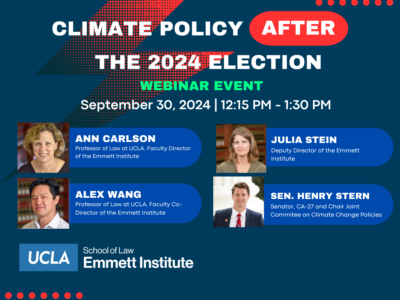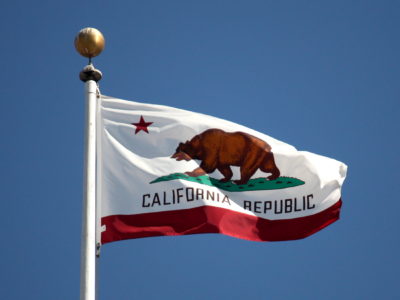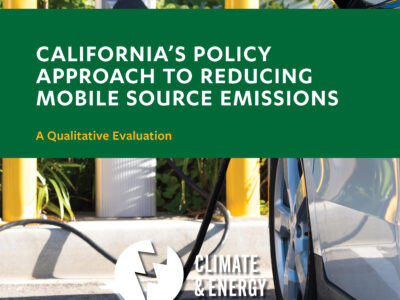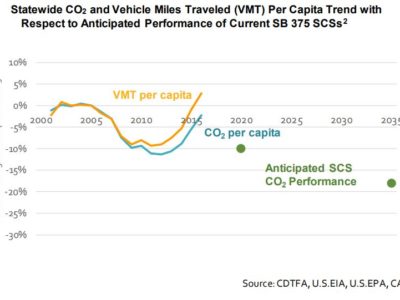CARB
Why Do Heat Pumps Have a Bad Rap? Lies
The Drain is a weekly roundup of environmental and climate news from Legal Planet.
I just listened to dozens of people tell me that heat pumps don’t work, may cause homelessness, and can bankrupt small businesses. This was shocking news to me, in no small part because I’m currently in the process of installing a heat pump in my condo. Obviously, I don’t want to waste money, sleep on …
Continue reading “Why Do Heat Pumps Have a Bad Rap? Lies”
CONTINUE READINGThe Dangerous Hypocrisy of Elon Musk
Tesla CEO Elon Musk wants to slash government and regulations for a Trump administration—even though California regulations helped build his companies.
Our chances of helping avoid the most catastrophic climate disruptions just dimmed dramatically. Donald Trump’s victory and self-declared mandate means a lot of things—among them, that crucial climate and environmental policies are threatened like never before. There will be plenty to say in coming days about what this means for America’s role in the world …
Continue reading “The Dangerous Hypocrisy of Elon Musk”
CONTINUE READINGCalifornia Must Not Abandon its Climate Leadership
California’s Low Carbon Fuel Standard has been successful. CARB should update the program without undermining its fundamental features.
On November 8, the California Air Resources Board, or CARB, is slated to consider approving amendments to California’s Low Carbon Fuel Standard. The program has been so successful in replacing high carbon petroleum-based fuels with lower emissions vehicle fuels that interest groups from all sides of the political spectrum have come forward to demand radical …
Continue reading “California Must Not Abandon its Climate Leadership”
CONTINUE READINGClimate Policy After the 2024 Election
In this UCLA Emmett Institute webinar, panelists discussed the climate implications of the 2024 election from the state, national, and international perspective.
Climate certainty. Legislative action. Whipsaw regulations. An exodus of civil servants. Chinese leadership despite being the world’s largest emitter. Those are a few of the possible outcomes of the Nov. 5 presidential election, according to our panelists. More than in any previous election, the two major candidates’ track records on environmental policies are well-established and …
Continue reading “Climate Policy After the 2024 Election”
CONTINUE READINGCalifornia’s Climate Leadership: A Timeline
California embraced climate action 2002 and has never looked back since.
The Golden State has adopted a slew of climate change laws over the past twenty years, and an even greater number of regulations . To help you keep track, here is a timeline of California’s most important actions. 2002 SB1078. California established first renewable portfolio standard (20% from renewables by 2010). AB 1493 (Pavley …
Continue reading “California’s Climate Leadership: A Timeline”
CONTINUE READINGHow Much Credit Can California Take for the Electric Vehicle Revolution?
New CLEE report responds to criticism over how the state quantifies policy impacts.
The California Air Resources Board (CARB) is the state’s lead agency on zero-emission vehicle policy, from its first-in-the-nation mandate on automakers to produce zero-emission models to its wide-ranging incentive programs, among other policy approaches. But in 2021, the California State Auditor released a report criticizing how CARB measures the effects of its zero-emission vehicle policies. …
Continue reading “How Much Credit Can California Take for the Electric Vehicle Revolution?”
CONTINUE READINGU.S. Supreme Court Declines to Revive Challenge to Oregon Clean Fuels Program
Legal Challenges to Oregon & California Vehicle Fuel Carbon-Intensity Standards Close to the End of the Line, Clearing Path Forward to Transformative Reductions in Greenhouse Gas Emissions from Transportation Sector
In this post, we continue our discussion of California’s Low-Carbon Fuel Standard (LCFS), which we introduced in our post on October 4, 2018. This is third in that series. This past Monday, the U.S. Supreme Court denied review of a federal appeals court decision upholding the legality of Oregon’s Clean Fuels Program. That decision finally frees …
Continue reading “U.S. Supreme Court Declines to Revive Challenge to Oregon Clean Fuels Program”
CONTINUE READINGEmmett Institute Publishes Issue Brief on California’s Clean Air Act Vehicle Authority
Co-Authored by Ann Carlson, Meredith Hankins, and Julia Stein
Cross-posted to the American Constitution Society’s ACSblog As we have previously covered in past Legal Planet posts, in an outright assault on public health and the environment, the Trump Administration recently proposed rolling back national motor vehicle emission standards put in place by the Obama Administration. As part of this proposal, the Trump Administration also …
CONTINUE READINGWe’re Never Going to Meet Our GHG Transportation Goals Unless We Radically Rethink Our Cities
Introducing an ongoing series focused on reducing vehicle miles traveled as a crucial climate mitigation strategy
I’ve been thinking a lot lately about vehicle miles traveled, or VMT. Specifically, why is it so hard to get people to think seriously about reducing VMT as a climate mitigation strategy? Building on my earlier ode to electric scooters, this post begins a semi-regular series on different aspects of VMT reduction strategies, beginning with …
CONTINUE READINGMajor Policy Attacks on California’s Low Carbon Fuel Standard and Why They’re Off-Target
Second in a Series About California’s Low Carbon Fuel Standard Program
[Post co-authored by Ted Parson and Sean Hecht] In this post, we continue our discussion of California’s Low-Carbon Fuel Standard (LCFS), which we introduced in our post on October 4, 2018. Because it’s a prominent and ambitious policy that will reduce California’s reliance on petroleum-based transport fuels, it is unsurprising the Low-Carbon Fuel Standard has …
CONTINUE READING











